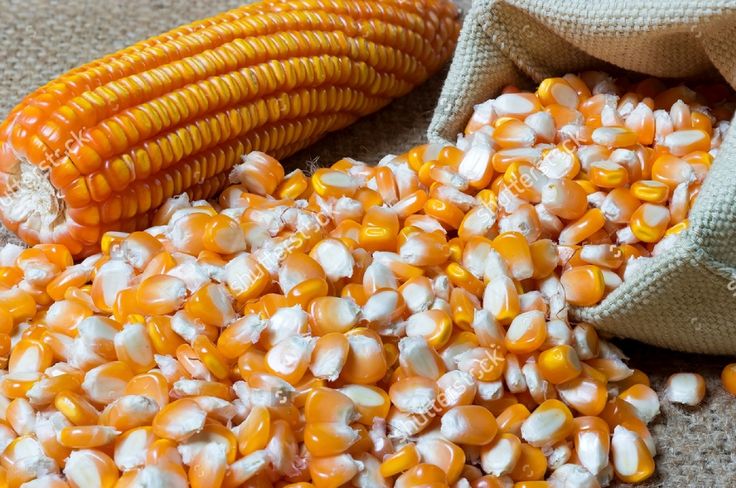Introduction: What is FPO Corn and Why Should You Care?
FPO corn, or Farmer Producer Organization (FPO) corn, refers to corn produced by collectives of smallholder farmers who come together under the FPO framework. These organizations aim to provide a better livelihood for farmers by improving their access to markets, technology, and agricultural inputs. In simple terms, FPOs give small farmers a bigger voice and better opportunities, especially in the corn industry. This blog post dives deep into how FPOs impact corn production and what it means for consumers and farmers alike.
The Role of FPOs in Corn Production
Farmer Producer Organizations are typically made up of small and marginal farmers who band together to address common issues like poor market access, low bargaining power, and lack of technical knowledge. When it comes to corn production, these issues can be particularly challenging, as corn is one of the most widely grown crops in the world, but small farmers often struggle to compete with larger agribusinesses.
FPOs provide these farmers with several benefits:
- Better Access to Technology: FPOs can provide advanced agricultural technologies that individual farmers might not afford on their own. This can result in higher yields and better quality corn.
- Stronger Bargaining Power: When farmers sell their corn as a collective, they are in a stronger position to negotiate prices with buyers, ensuring they get a fair deal.
- Access to Credit: Many FPOs offer their members easier access to financial services like loans, helping them invest in better seeds, equipment, and storage facilities.
How FPO Corn Stands Out from Competitors
The concept of FPO corn is different from traditional corn farming in several ways. The most significant is the idea of collective action. Unlike large-scale commercial farms where decisions are made by corporate stakeholders, FPOs prioritize the well-being of individual farmers. This makes FPO corn a more ethical choice for consumers who are conscious about where their food comes from and how it is produced.
Additionally, FPO corn is often associated with sustainable farming practices. Many FPOs are adopting organic or low-input farming methods, reducing the reliance on harmful pesticides and chemical fertilizers. This makes the corn not only healthier for consumers but also better for the environment.
Why Should You Choose FPO Corn?
You might be wondering, why should I care about FPO corn when I can easily buy regular corn at the supermarket? Here are some compelling reasons to consider:
- Supporting Small Farmers: When you purchase FPO corn, you’re directly contributing to the livelihood of small-scale farmers. Your purchase helps these farmers gain a fair income, empowering them to continue producing high-quality crops.
- Healthier and Safer: Many FPOs emphasize organic farming or reduced chemical use. This means the corn you’re eating is likely to contain fewer harmful residues.
- Better Taste: It might sound surprising, but many people find that FPO-grown corn has a richer, more natural taste compared to corn produced by industrial farms. The attention to detail that small farmers give to their crops can often result in superior flavor.
- Environmental Impact: By supporting FPOs, you’re also contributing to more sustainable farming methods, which are essential for preserving soil health, reducing carbon emissions, and protecting biodiversity.
Comparing FPO Corn with Competitors
When we analyze competitors in the corn industry, large-scale commercial farms typically dominate. However, they lack the ethical and environmental benefits that FPO corn brings to the table. Competitor corn often focuses on maximizing yield, sometimes at the expense of soil health and sustainability. Moreover, small farmers producing FPO corn can tap into niche markets where consumers prioritize organic and locally-sourced products, something large farms may not focus on.
Another key advantage is the transparency and traceability of FPO corn. Consumers can often trace their purchase back to the specific collective or region where the corn was grown, fostering a stronger connection between the farmer and the end-user.
The Future of FPO Corn
The future of FPO corn looks bright as more consumers become interested in where their food comes from. With rising awareness about sustainable agriculture and fair trade, FPOs have the potential to expand their market share significantly. As governments and non-profits continue to support FPOs with funding and resources, we can expect to see even more farmers joining these organizations, improving the quality and availability of FPO corn.
In addition, technological advancements in agriculture will further benefit FPO members. With better access to data, weather forecasts, and pest management tools, FPO corn growers will be able to improve both their yields and their profits.
Conclusion: Why FPO Corn is the Way Forward
FPO corn represents a positive shift in agriculture, combining the best of small-scale farming with the collective strength of producer organizations. Not only does it provide a more ethical choice for consumers, but it also offers tangible benefits to the farmers who produce it. By choosing FPO corn, you’re making a statement about supporting fair trade, sustainability, and high-quality food. So next time you’re shopping, think about where your corn is coming from—and consider the difference FPO corn can make, both for you and for the world.
FAQs
What is FPO corn?
FPO corn is corn produced by Farmer Producer Organizations, which are collectives of small farmers who work together to improve their market access and sustainability practices.
Is FPO corn organic?
While not all FPO corn is certified organic, many FPOs focus on sustainable and low-input farming practices, making their corn healthier and more environmentally friendly.
How does FPO corn benefit the environment?
FPOs often adopt sustainable farming methods that reduce the need for chemical fertilizers and pesticides, promoting healthier soil and ecosystems.
Where can I buy FPO corn?
FPO corn is increasingly available at local farmers’ markets, organic stores, and sometimes through direct-to-consumer platforms online.



